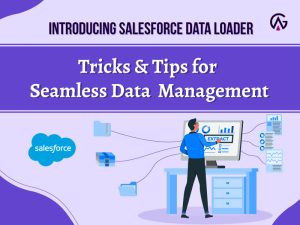In the wake of the Covid pandemic, the demand for Salesforce Developers skyrocketed as organizations rushed to embrace digital transformation. As a result, professionals with the right approach to upskilling and career progression found themselves in an advantageous position. In this blog, we will delve into the average Salesforce Developer salaries across different regions, the factors influencing these salaries, and essential tips to improve your earning potential in the rapidly evolving Salesforce economy.
Salesforce Developer Salary Averages in 2023
The salary varies significantly based on location, experience level, and whether the role is contractual or full-time. Let’s take a look at some salary averages in different regions:
North America:
Entry level: $116,000 (USD) per year
Senior level: $155,125 (USD) per year
Contract: $127.50 (USD) per hour
Canada:
Entry level: C$121,250 per year
Senior level: C$149,375 per year
Contract: C$115 per hour
Europe:
UK: £56,875 per year
Ireland: €48,500 per year
Italy: €29,375 per year
Spain: €32,750 per year
Switzerland: 96,125 Fr. per year
Netherlands: €3,850+ per month
Belgium: €2,885 per month
Asia-Pacific:
Australia: AU$145,250 per year
Japan: ¥5,715,000 per year
Singapore: S$67,500 per year
Factors Influencing Salesforce Developer Salaries
To understand Salesforce Developer salaries fully. One must consider the factors contributing to variations between one professional’s salary and another’s. Let’s explore!
The key factors that play a significant role:
Experience (Seniority):
As with any profession, experience, and seniority are crucial in determining salary expectations. The more experience and responsibility a Salesforce Developer has, the higher their salary potential.
When categorizing developers based on experience levels, it is essential to consider the number of years of experience and the complexity of tasks they handle rather than just the number of years spent in the role.
Certifications:
Salesforce certifications hold immense value in the Salesforce ecosystem. Professionals with credentials demonstrate their expertise and proficiency in using Salesforce’s various tools and functionalities. As a result, holding certifications can provide leverage when seeking a more senior position or negotiating a higher salary.
According to a survey, 25% of respondents agreed that holding the Platform Developer I certification will likely increase your worth as a Salesforce professional. This was closely followed by the Salesforce Certified Platform Developer II certification, with 23% of respondents agreeing on its positive impact.
Moreover, 67% of respondents reported experiencing an increase in their salary after earning any Salesforce certification, with an average salary increase of 21%. However, it is crucial to remember that while certifications can be valuable, they should be considered alongside other factors affecting salary.
Location:
Geographic location is a significant determinant of salary figures. Differences in the cost of living between countries and regions lead to varying salary ranges for Salesforce Developers. For example, the average salary for a Senior Developer in the United States is approximately $155,000; in the United Kingdom, it is around $101,400. Similarly, the average wage in Australia is about $116,500, reflecting the economic influences of each country.
Moreover, demand for Salesforce Developers can also impact salaries in specific regions. In areas where demand outstrips the supply of professionals, salaries tend to be higher due to increased competition for skilled talent. However, the rise of remote work and hybrid work models during the pandemic has somewhat democratized location-based earning potential, allowing professionals to consider opportunities beyond their immediate geographical area.
Tips to Improve Your Salesforce Developer Salary
To maximize your Salesforce Developer salary and stand out in the competitive job market, it is essential to continuously develop your skills and stay abreast of industry trends. Here are some critical tips to enhance your earning potential as a Salesforce Developer in 2023:
Embrace New Technologies:
The Salesforce ecosystem is continually evolving with the introduction of new technologies. Embrace emerging technologies like Lightning Web Components (LWCs), which are increasingly crucial for front-end development. With Salesforce’s decision to phase out Aura components, LWCs are gaining prominence, and developers skilled in this area are in high demand. Upskilling in LWCs will give you a competitive edge and ensure your career stays ahead of the curve.
Focus on Reusable Components for Flow:
Developers who can create reusable components and actions for Flows are highly valued in organizations. As developers are typically more expensive than administrators, there are often more administrators than developers on a team. Effective communication between developers and administrators is essential for seamless collaboration. Salesforce is also actively promoting Flow as a powerful tool, and developers should adapt their skills to create efficient and reusable components within Flows to enhance their value.
Familiarize Yourself with Second Generation Packaging (2GP):
For those working for Independent Software Vendors (ISVs) or intending to publish apps on the Salesforce AppExchange, Second Generation Packaging (2GP) knowledge is critical. While Salesforce may not make 2GP mandatory in 2023, it will likely offer free migration from First Generation Packaging (1GP) to 2GP in the future. Early adoption of 2GP will position you as an early adopter, and Salesforce may provide support and resources to help you make the transition smoothly.
Moreover, 2GP offers significant cost savings and streamlines the development process, making it an attractive option for packaging and deploying applications on Salesforce.
Embrace DevOps:
DevOps is a relatively new concept in the Salesforce ecosystem but is gaining traction rapidly. Salesforce has introduced tools like SFDX (Salesforce Developer Experience) and the DevOps Center to facilitate more seamless collaboration and development processes. The ability to manage deployments across multiple orgs and automate release pipelines is precious, especially for consultant developers working in a consultancy setting.
Outside of consultancies, utilizing source control and establishing automated release pipelines, even in simple scenarios, can validate the success of deployments. Embracing DevOps practices will demonstrate your proficiency in modern development methodologies and streamline your workflow, thereby enhancing your productivity as a Salesforce Developer.
Prioritize Testing:
Testing is a critical aspect of Salesforce development, and developers at all levels must focus on developing effective testing strategies. Entry-level developers often write simple unit tests, but as they progress in their careers, they should design code that is easy to test and validate. Utilizing dependency injections and design patterns will facilitate testing, and a strong emphasis on testing will lead to the early detection of potential issues or bugs. Failing tests should not be perceived negatively; instead, they should be viewed as an early warning sign to improve code quality and maintain the reliability of your Salesforce solutions.
Avoid falling into the trap of writing tests solely to meet Salesforce’s code coverage metric. Instead, aim to write tests that comprehensively validate your code’s functionality in positive and negative scenarios. Integration design within best practices can significantly reduce testing challenges and make your development process more efficient.
Utilize Salesforce Functions:
For developers involved in handling complex business processes, Salesforce Functions can be an invaluable tool. Understanding when and how to use these functions effectively is essential to optimize productivity and deliver efficient solutions. Please familiarize yourself with the capabilities of Salesforce Functions and apply them in scenarios where they provide the best results.
Keep an Eye on Platform Releases:
Staying updated with Salesforce’s platform releases is essential to stay ahead of the curve and maintain your earning potential. By being an early adopter of new features and functionalities, you can set yourself apart from the competition and become a valuable resource within your team. For instance, some developers might still need to rely on updated tools like Process Builders. Embracing new features can improve your productivity and lead to more impressive results, ultimately contributing to your professional growth and salary advancement.
Conclusion
Salesforce Developers play a vital role in extending its capabilities, enabling organizations to optimize their operations and drive growth. To maximize your earning potential in the dynamic Salesforce economy of 2023, focus on continuous learning, embrace new technologies, and become a valuable resource within your team. By staying ahead of the curve, honing your skills, and understanding industry trends, you can confidently negotiate higher salaries and ensure a prosperous career as a Salesforce Developer.



